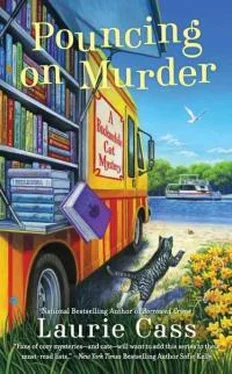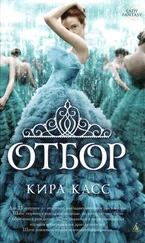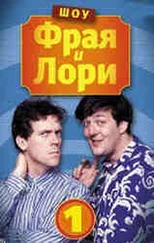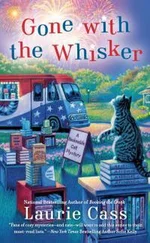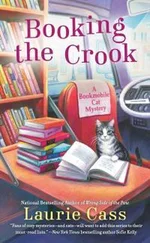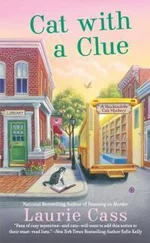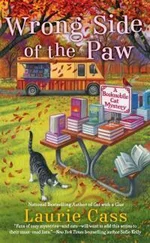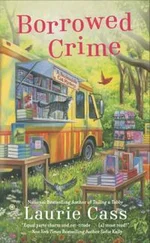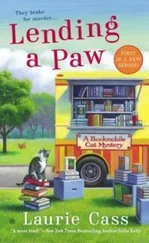“A friend of Henry’s,” I said, trying to sound casual and not like I’d just had the bejeebers scared out of me. And for some reason, scared I definitely was. I inched backward, away from the guy. “He used to bring me maple syrup. I’m . . .” My throat was suddenly too tight to talk. I gave it a quick rub and tried again. “I’m going to miss him.”
The man nodded. He was probably in his mid-forties, was more than six feet tall, bulky as a football player, and dressed in jeans, work boots, and a hooded fleece sweatshirt from a private university. “Cole Duvall. I have a summer place over there.” He tipped his head, covered with carefully cut white-blond hair, in the direction of Rock Lake. “Sure is a shame about Henry.”
I introduced myself and said, “He and his wife had children, didn’t they?”
“Three boys.” Cole Duvall leaned against the tree, his hands tucked into the hand-warmer part of his sweatshirt. “Don’t remember what any of them do, but they’re scattered all over the country. We’ve had this place five years now and I’ve never met any of them.”
“Do you think they’re going to sell the property?”
Cole shrugged. “No idea. Like I said, I’ve never met them. But it’s hard to figure them keeping it, being so far away and all.”
Though that made sense, it made my heart droop a little. “There was a developer here a few mintues ago. He said he’d talked to the heirs.”
“Oh?” The expression on Cole’s face sharpened the slightest bit. “Any idea who it was?”
“Felix Stanton, Northern Development. Um, are you okay?” Because Cole had an odd expression on his face.
“He didn’t waste any time, did he?” Cole asked, disgust thick in his voice.
“What do you mean?”
“Stanton has been trying to talk Henry into selling since last fall. The poor guy is barely in the ground and already that vulture is poking his nose around, trying to make a buck off Henry’s sons.” He made a rude noise in the back of his throat. “Hard to believe some people, you know?”
We chatted a little more, said amiable good-byes, and I walked back down the hill via the two-track that Cole had pointed out, thinking all the while.
Hard to believe some people, you know?
“I do know,” I murmured. “I absolutely do.”
Because, after all, I was a librarian, and librarians knew a lot more about people than what kinds of books they checked out.
Chapter 9
After a late lunch at the houseboat—peanut butter and jelly for me, cat food for Eddie—I drove to the boardinghouse to pick up a few things.
“You do this every year,” Aunt Frances said. She was sitting at the kitchen table, paperwork spread out around her.
“Four years in a row,” I answered cheerfully. “Moving with the seasons, out with the old winter, in with the new spring, opening myself up to new horizons and new adventures, opening my bedroom here for new boarders.”
“No, I mean every year you leave things behind.”
I looked at the cardboard box into which I’d been tossing items. A book, a magazine, a handful of hair bands, a comb, a bottle of liquid soap that had been a Christmas present from my sister-in-law, and a package of instant oatmeal. “Not a lot, percentage-wise.”
She laughed. “I’m just saying that maybe it’s psychological. That you leave things behind because you want to come back.”
“Well, of course I want to come back. You’re my favorite aunt in the entire world.”
“I’m your only aunt,” she said.
“True, but even if you weren’t you’d still be my favorite.”
“And you know this how?”
I grinned. “Going with the odds, that’s all. You’ve met my uncle, haven’t you?” My mom’s bachelor brother was a fine man, but there were common qualities in everyone born to the Rivard family, including my mother, and a keen sense of the absurd was not one of them.
Aunt Frances nodded, conceding my point. “Speaking of favorites, how’s Tucker doing?”
“Fine,” I said vaguely, repacking the box. Which didn’t need repacking, but with any luck she didn’t know that. My aunt, however, had the eyes of an eagle and suddenly didn’t seem very interested in her paperwork, so a fast distraction was needed.
“Ash Wolverson stopped by the marina the other day,” I said. I’d found out last fall that Aunt Frances was a friend of Ash’s mother.
“He’s a nice boy,” my aunt said.
“Boy” wasn’t a term I would have thought applied to the very masculine deputy, but whatever.
“Are you two becoming friends?” she asked.
I’d met Ash last year, during the bookmobile’s maiden voyage, but almost all of our interactions had been law-enforcement-based. “I doubt it,” I said. “He asked me out.”
“And you turned him down?” Aunt Frances frowned.
“Of course I did.” I frowned back. “I’m dating Tucker.”
“Exclusively?”
I looked at her. “Aunt Frances, what’s going on here? No, don’t deny it, I know from the way you’re pursing your lips that you’re holding back on me. What aren’t you telling me? Have you heard something about Tucker?”
She blinked at me. “Good heavens, no. How would I hear anything about him?”
“Because you have amazing powers that, thankfully, you use only for good. And you have a vast network of contacts. I wouldn’t be surprised if you’d been getting reports from a former boarder all winter about Cade’s recovery.”
Smiling, she said, “You make me sound like a spymaster. A career choice I never considered. But to answer your question, what I’m holding back is about Ash. Though it’s an old story, and public knowledge, I still feel a little squirmy telling you.”
“Then don’t,” I said promptly. “I don’t want you to feel squirmy.”
And I certainly didn’t want to feel squirmy myself, the next time I ran into Ash. My face warmed a little as I pictured a physical running-into episode: Minnie, trundling head-on into the sturdiness of Ash, his hands gripping my shoulders to keep me from falling to the ground, my face turned up to his. A nice image, but I was seeing Tucker. Every once in a while.
Aunt Frances sighed. “No, I think you need to know.”
“Okay.” I pulled out a chair and sat. “Spill.”
She toyed with the corner of an envelope. “I met Lindsey, Ash’s mother, the first year I moved here. I know you don’t remember Everett very well, but he and Lindsey’s husband had grown up next door to each other and were good friends up until the day Ev died.”
“So you got to know Lindsay because Uncle Everett and Ash’s dad hung out together?”
Aunt Frances nodded. “Dinners, card games, cookouts. You know the kind of thing. Ash was the cutest little toddler imaginable.”
Oh, I could imagine all right.
“Anyway,” she said, “it wasn’t until Ash started to talk that anyone realized there was something wrong.”
“What do you mean?”
“The poor boy stuttered.” She sighed. “It was awful. He couldn’t say two words in a row without one of them getting stuck inside his mouth. The other children were horrible to him.”
That, too, I could imagine. “There isn’t a trace of it in his speech now. How long did it take for him to get over it?”
She gave me a long look. “Almost eighteen years.”
I stared at her. “You mean, he stuttered all through elementary school?” I winced. “And middle school?”
“High school, too,” she said sadly. “Lindsey finally found a speech therapist who could help when he was a junior.”
I pictured a younger, shorter Ash. Tried to imagine that Ash being a natural target for bullying. No wonder he didn’t realize how good-looking he was. In high school, the popular girls would have turned up their noses at him. Then I realized a piece of the story was missing. “What happened to Ash’s dad?”
Читать дальше
